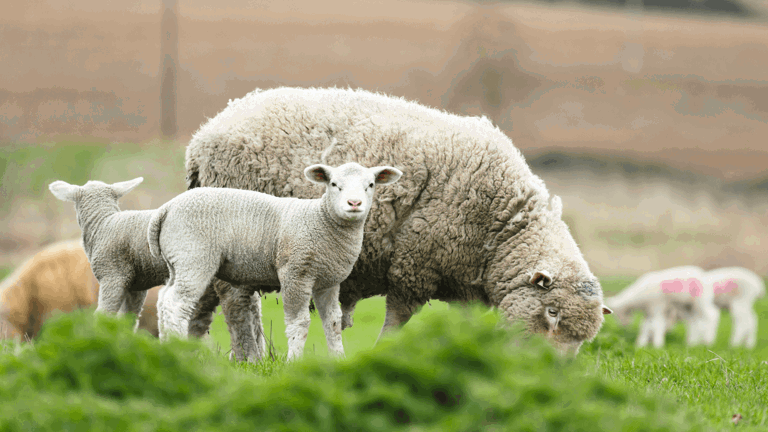A farming divorce presents a unique and often emotionally charged challenge for rural families. Unlike standard divorces, these cases frequently involve inherited land, intergenerational ownership, and businesses with limited liquidity, raising complex questions about fairness, sustainability, and succession.
As legal specialists in farming and rural matters, we understand the critical balance between preserving a family’s legacy and securing a fair financial outcome for both parties. This guide explores the legal, financial, and practical issues at stake when a rural marriage ends and how early advice from experienced solicitors can make all the difference.
How is a farming divorce different from a standard divorce?
On any divorce, the main consideration is how to divide finances fairly between a divorcing couple. What is ‘fair’ will depend on individual circumstances and assessed against relevant statutory factors in section 25 of the Matrimonial Causes Act 1973.
Farming divorces are different to a ‘standard’ divorce because most assets are often tied up in the farming business and in many cases, the only asset is the farm and the business.
Why can they be more complex?
The common challenges presented with rural divorce cases are in respect of valuing the farming business and its assets, particularly where there are intricate ownership structures, a variety of different types of assets and tax liabilities, all within a changing economic landscape.
There is often a lack of liquidity in farming businesses and so it is difficult to realise funds to meet parties’ needs on divorce, without having an adverse effect on the farming business. The focus tends to be on trying to achieve a fair outcome for the parties without negatively impacting on the future of the farm and related succession planning.
How does divorce affect ownership of farmland that’s been in the family for generations?
There is a significant risk that inherited farmland would be sold or transferred in order to meet parties’ needs, which can disrupt years of succession planning.
What happens to agricultural subsidies and grants during a divorce settlement?
Agricultural subsidies and grants would need to be valued by a professional expert, to form part of the overall value of the farm.
How are farming business assets valued, especially when income varies seasonally?
Farming business assets would need to be valued by a professional expert to include land, buildings, equipment, livestock, farm subsidies, grants as well as the business good will. Tax liabilities will affect the overall value. The effects of implementing any potential divorce settlement, such as sale or transfer of any property will also need to be factored in.
The income produced by the farm would be assessed and the seasonal nature of that income would be considered as part of an overall settlement, particularly if the non-farming spouse is seeking spousal maintenance.
Can farm equipment and machinery be divided in the same way as other assets?
Farm equipment and machinery are assets to be valued, often on a second-hand basis, as part of the farm’s overall valuation. These assets can be transferred and/or sold on divorce but consideration will need to be given as to how this may affect the future of the farming business.
The ownership of the assets will also be relevant, dependent on whether there is a partnership or limited company farming business.
What impact could divorce have on succession planning for the farm?
There may be a change in the ownership and /or availability of farming assets, as a result of a divorce settlement, which will impact succession planning.
How are farming partnerships or limited companies treated?
Farming partnerships and limited companies, which the spouses have an interest in, form part of the asset base on divorce.
In a farming partnership, there would need to be careful consideration of any partnership agreement (or the implied partnership terms if there is no written partnership agreement). It is important to understand which farming assets may be held as partnership assets or personal assets and how those assets may be treated on any dissolution of the partnership.
A limited company makes it clear what may be business assets or personal assets. Establishing the value of the spouse’s shares will be crucial as the shares will form part of the asset base on divorce.
Could a sale of farmland be forced, even if it disrupts the business?
The court has a wide range of powers on divorce, which includes the power to order a sale or transfer of assets, to include the farm and farmland, even if it disrupts the business.
The court will however be very mindful of trying not to disrupt the business if there are other options available to ensure the parties’ reasonable needs and the needs of any minor children are sufficiently met.
Are inherited farming assets treated differently from jointly acquired ones?
Farms are often inherited over numerous generations. As a result, they may be treated by the family courts as ‘non-matrimonial’ assets.
Non-matrimonial property is defined as property acquired by one party before the marriage, by inheritance or gift. The significance is that non-matrimonial property is not automatically shared between parties and can only be divided if there is a need to do so, i.e. to meet the parties’ reasonable needs.
If the parties’ needs cannot be met from any non-farming assets and matrimonial property, then it is likely the farming assets would need to be divided and invaded.
The distinction is that ‘matrimonial’ property, i.e. those assets acquired through joint endeavour, will automatically be divided between parties on divorce although the extent to which they are divided is subject to the court’s discretion.
Can a prenuptial or postnuptial agreement save a farm in a divorce?
A nuptial agreement can help to protect and preserve farms and farming businesses from a claim by the other spouse. The parties can agree to ring-fence such assets from being divided on divorce which helps to protect those assets from a sale/transfer and disruption to businesses.
A nuptial agreement can also benefit the ‘non-farming’ spouse, to ensure there is agreement and clarity over what they may receive on a divorce to meet their needs.
This would mitigate the risk of any future litigation to reduce acrimony, stress and costs on a divorce. Legal costs of divorce and divorce settlements can often eradicate years of wealth and asset accumulation which a nuptial agreement seeks to avoid.
Although nuptial agreements are not strictly legally binding, there is significant weight given to it’s terms and it is highly likely it would be upheld if qualifying criteria is met.
Contact our solicitors
Farming divorces demand a deep understanding of agriculture, business structures, and family legacy. Our Partner-led team brings decades of experience advising rural families, guiding them through complex divorce settlements.
If you’re navigating a farming divorce or want to safeguard your assets, contact one of our family law solicitors today.
Key Contact

Eleanor Piddock
Family Law Associate Solicitor
Eleanor Piddock is an Associate Solicitor within our Family Law Team and provides expert legal advice and support to clients navigating complex family matters.




